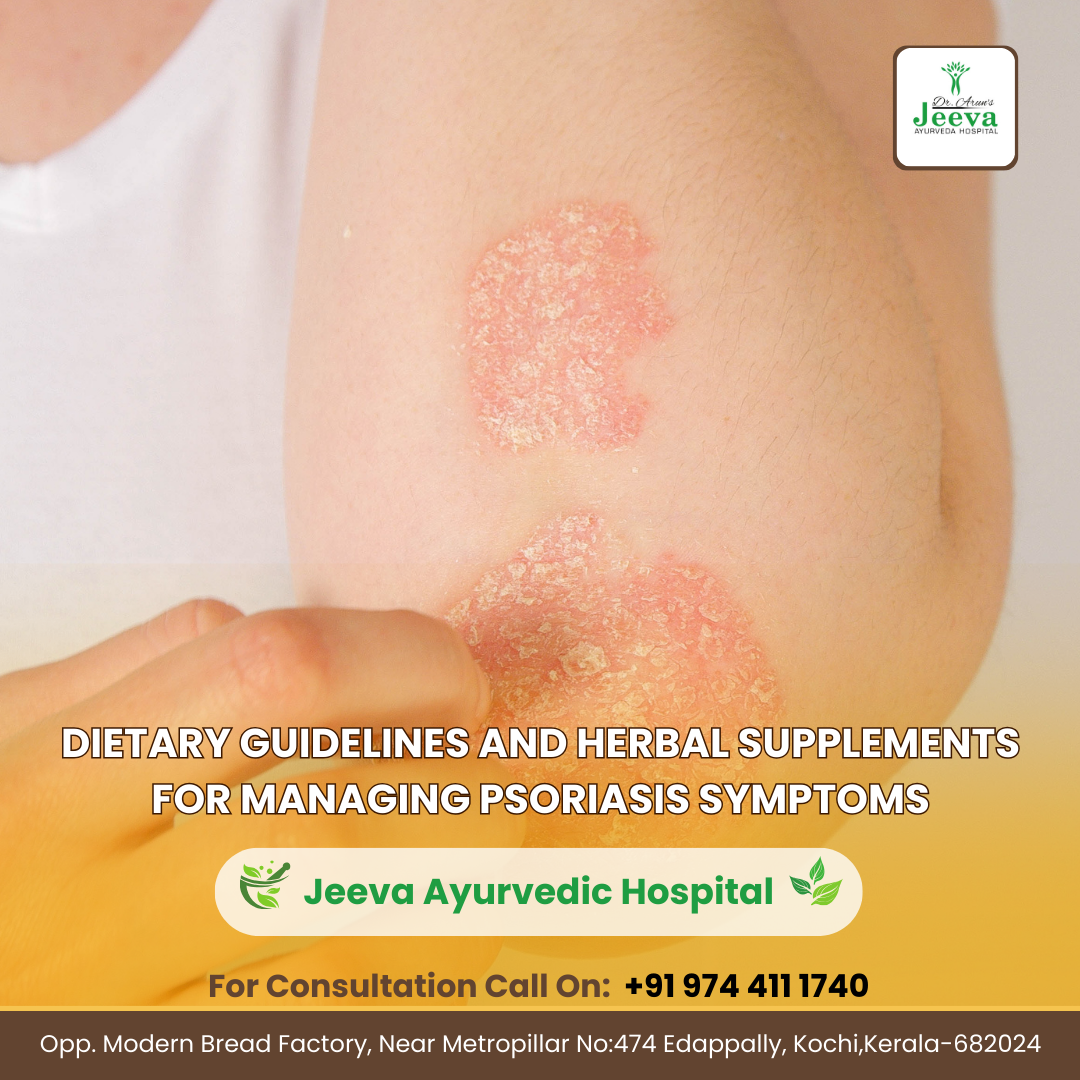Psoriasis is a chronic autoimmune condition characterized by red, itchy, and scaly patches on the skin. While there is no cure for psoriasis, various dietary guidelines and herbal supplements can help manage symptoms and improve quality of life.
Dietary Guidelines for Psoriasis:
Anti-inflammatory Diet: Focus on foods that reduce inflammation, such as fruits, vegetables, whole grains, and healthy fats like omega-3 fatty acids found in fish.
Limit Trigger Foods: Avoid or minimize consumption of foods that may trigger psoriasis flare-ups, including processed foods, refined sugars, and dairy products.
Stay Hydrated: Drink plenty of water to keep your skin hydrated and help flush out toxins from the body.
Omega-3 Fatty Acids: Incorporate sources of omega-3 fatty acids into your diet, such as salmon, walnuts, flaxseeds, and chia seeds, which can help reduce inflammation.
Vitamin D: Ensure adequate intake of vitamin D through foods like fortified dairy products, fatty fish, and exposure to sunlight, as vitamin D deficiency may exacerbate psoriasis symptoms.
Probiotics: Consume foods rich in probiotics, such as yogurt, kefir, and fermented vegetables, to support gut health and potentially reduce inflammation associated with psoriasis.
Gluten-Free Diet: Some individuals with psoriasis may benefit from a gluten-free diet, as gluten sensitivity or celiac disease could worsen symptoms.
Herbal Supplements for Psoriasis:
Turmeric: Curcumin, the active compound in turmeric, exhibits anti-inflammatory and antioxidant properties, which may help alleviate psoriasis symptoms.
Aloe Vera: Aloe vera gel can be applied topically to soothe inflamed skin and promote healing of psoriasis lesions.
Oregon Grape: This herb contains berberine, which has been shown to inhibit the overproduction of skin cells associated with psoriasis.
Milk Thistle: Milk thistle may help support liver function and detoxification, which can benefit individuals with psoriasis, as the liver plays a role in metabolizing toxins that may trigger flare-ups.
Ginger: Ginger has anti-inflammatory properties that may help reduce redness, itching, and scaling associated with psoriasis when consumed or applied topically.
Evening Primrose Oil: Rich in gamma-linolenic acid (GLA), evening primrose oil may help improve skin hydration and reduce inflammation in individuals with psoriasis.
Mahonia Aquifolium: Also known as Oregon grape, mahonia aquifolium extract has demonstrated efficacy in reducing psoriasis symptoms when applied topically.
Neem: Neem oil or neem leaf extract has antimicrobial and anti-inflammatory properties that can help soothe irritated skin and reduce psoriasis symptoms.
Fish Oil: Omega-3 fatty acids found in fish oil supplements may help reduce inflammation and improve symptoms of psoriasis when taken regularly.
Licorice Root: Licorice root extract has anti-inflammatory and immunomodulatory effects that may benefit individuals with psoriasis when used topically or ingested.
Conclusion:
While there is no one-size-fits-all approach to managing psoriasis, adopting a healthy diet rich in anti-inflammatory foods and incorporating herbal supplements known for their therapeutic properties can help alleviate symptoms and reduce the frequency of flare-ups. It’s essential to consult with a healthcare professional before making any significant changes to your diet or starting any new supplements, especially if you’re currently undergoing medical treatment for psoriasis.


Give a Reply